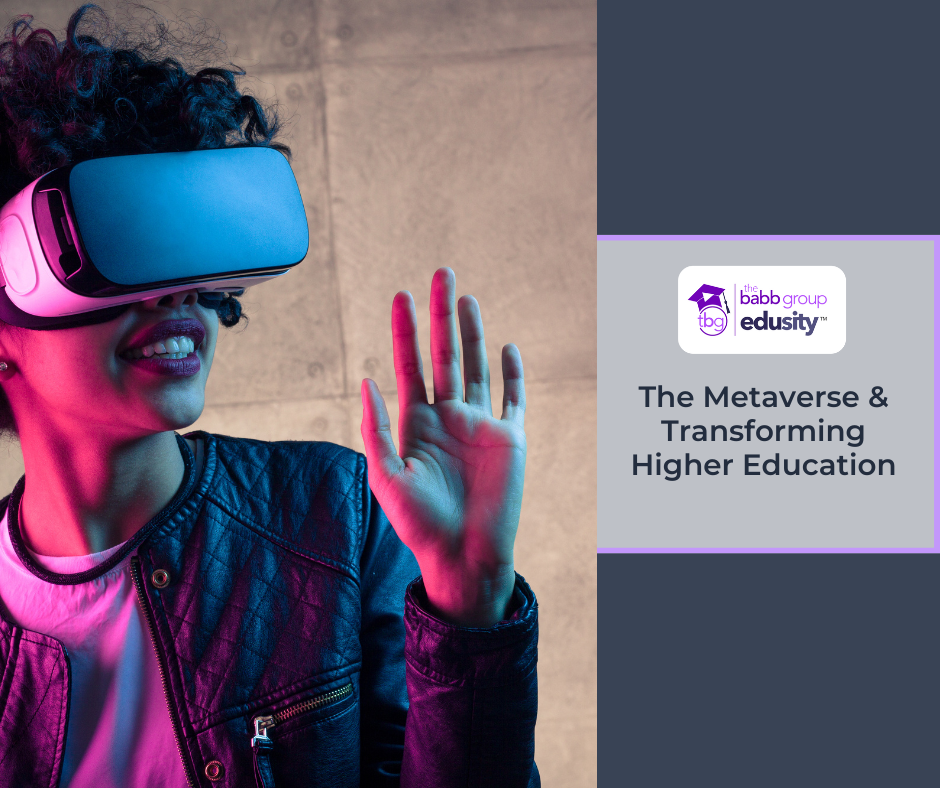
But before you rush out and invest in VR headsets, let’s look at the potential and practical applications of the metaverse in higher education.
The Potential of the Metaverse
Think beyond video lectures and virtual live classes. The metaverse opens doors to immersive, interactive learning experiences that engage students on a deeper level. They can step into historical simulations, conduct virtual fieldwork, and interact with complex subjects in real-time, making learning more memorable and impactful.
- History classes: Travel back in time to witness the Gettysburg Address, meet Leonardo di Vinci, and experience the Paris Peace Treaties.
- Science labs: Perform simulated experiments on the International Space Station or dissect virtual specimens without harming animals.
- Engineering courses: Design and test bridges in a simulated environment, saving time and resources.
- Language learning: Immerse yourself in a virtual foreign country, practicing language skills with native speakers.
Challenges and Ethical Considerations
The metaverse isn’t a perfect universe. We need to be mindful of challenges, including:
- Accessibility: Accessibility issues present in several formats. Not everyone has equal access to VR headsets and high-speed internet, potentially exacerbating equity gaps. People who experience visual impairment or other conditions may not be able to participate fully.
- Technology limitations: Current metaverse platforms are in their early stages, with limitations in realism, interactivity, and user capacity.
- Ethical considerations: We need to examine privacy concerns, data security, and potential biases within AI-powered metaverse experiences.
Metaverse Pioneers
Despite the challenges, innovative educators are already exploring the metaverse. Here are a few examples:
- Professor Michael Porter: Uses VR to transport students to ancient Rome in his Stanford University archaeology class.
- Dr. Cathy Davidson: Created a virtual “Future of Learning” world in Second Life, where students collaborate on projects across disciplines.
- Professor Peter Kahn: Researches the impact of VR nature experiences on student well-being in his University of Washington lab.
Take Your Campus into the Metaverse
While widespread adoption might be a few years away, administrators can start preparing their campuses today.
- Invest in basic infrastructure: Consider upgrading internet bandwidth and exploring dedicated VR spaces.
- Support faculty exploration: Offer grants or workshops to encourage experimentation with metaverse tools.
- Partner with external developers: Collaborate with tech companies to create custom educational experiences for your institution.
- Prioritize ethical considerations: Develop guidelines for responsible data collection, user privacy, and inclusivity in virtual environments.
The metaverse is not a replacement for traditional education. It’s a powerful tool that can enhance and complement existing teaching methods. By approaching it with an open mind, addressing challenges responsibly, and fostering faculty innovation, we can unlock the potential of the metaverse to create a more engaging, accessible, and transformative learning experience for all.
The future of education is a mix of virtual and physical spaces where learning transcends geographic and technological boundaries.
Additional Resources:
- Metaverse Learning Initiative: https://metaverselearning.co.uk/
- VR/AR Association for Higher Education: https://www.thevrara.com/university
- The Center for Virtual Worlds & Simulations: https://www.thevrara.com/
Angela Britcher
Latest posts by Angela Britcher (see all)
- Enhancing First-Year Experiences in Higher Education - August 1, 2024
- Enhancing Education with Virtual Reality: A Hands-On Approach - June 27, 2024
- Higher Education Trends: Insights from Our COO, Sheila Fry - June 13, 2024
